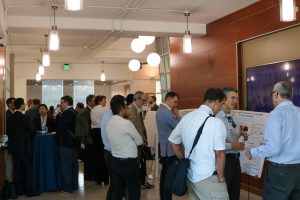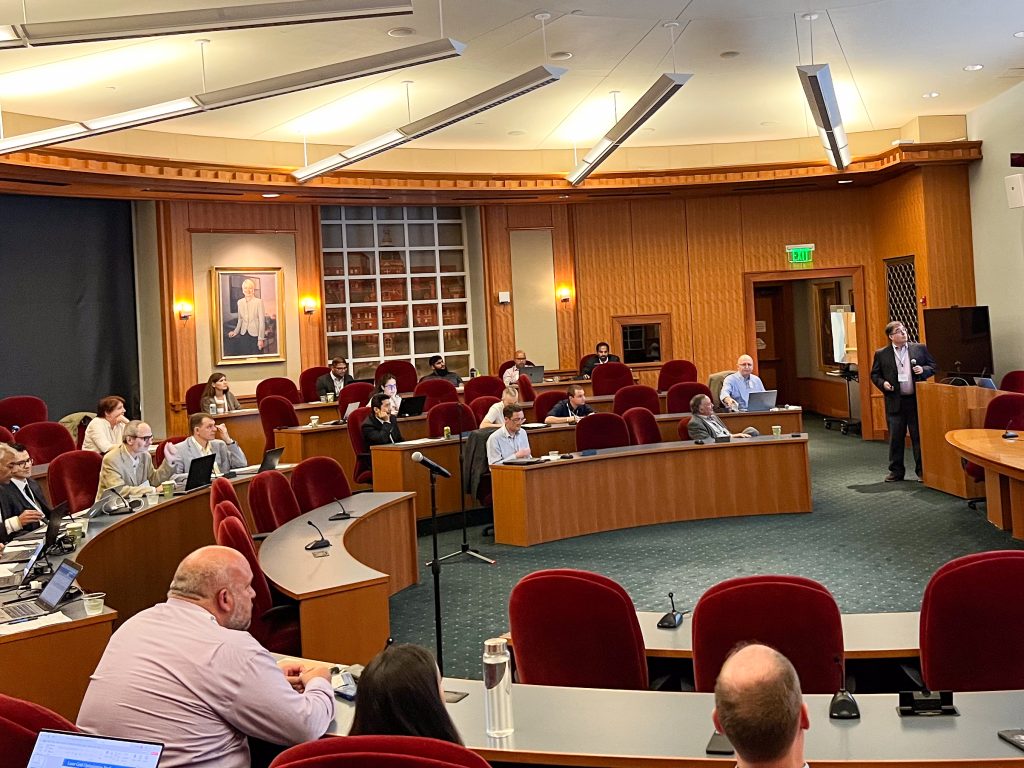
In the MSEE URA, scientists from universities and labs across the country work together to understand the basic science needed to mitigate the effects of chemical, biological, and nuclear weapons.
Chemical and biological agents can be difficult and dangerous (if not impossible) to study in laboratory conditions, which is why researchers often use simulants to take the place of these warfare agents. Simulants can allow scientists to study the way these compounds move, react, and degrade. This can be seen in a recent video about Research Area 3 – Focus Area 2.
Researchers in MSEE share data, facilities, and research methods, furthering their collective knowledge base through constant collaboration. Sharing information about which laboratory simulants to use and how to use them safely, effectively, and efficiently was the goal of MSEE’s Simulants Workshop.
Held at the Johns Hopkins University Homewood campus the week of October 3, the three-day workshop was organized by Hergen Eilers, a professor of physics at Washington State University and coordinator of MSEE’s Research Area 3 – Focus Area 2: High-Temperature Properties and Chemistry of Agents and Simulants.
The workshop’s 35 in-person guests and 20 virtual attendees were treated to introductory remarks from Eilers, MSEE Director Tim Weihs, and MSEE Technical Point of Contact Jeff Davis. Lee Nelson, Technical Director of DTRA’s Counterforce Systems Division, gave a presentation on the agency’s interests in chemical warfare agents (CWAs) and their simulants.
The workshop featured 29 presentations and a slew of informative activities. Each event was focused on simulants of CWAs, their relation to the agents of interest, various testing methods and results, and computational modeling of simulant and agent data. Open discussions were held to explore experimental and modeling techniques, as well as the pros and cons of specific CWA simulants. A poster and networking session fostered discussion and community among attendees.
This workshop was the latest of many organized by MSEE researchers and staff. In the last 18-months alone, MSEE has hosted six workshops and five short courses. Past topics include uncertainty quantification, impact research experiments, and optical spectroscopy.

